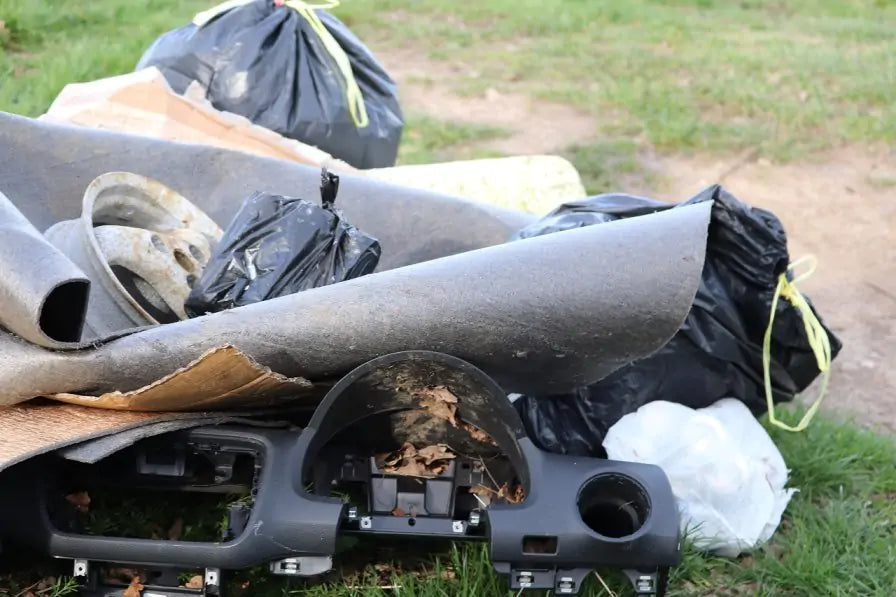Why not add these to compliment your wheelie bins?
Your basket is currently empty.
Shop NowWe guarantee to have the lowest price! Find the same bin for a cheaper price and we will beat it!

Last year saw a 5.6 percent increase in reported incidents of fly-tipping in the United Kingdom. Local authorities dealt with a total of 900,000 cases of this illegal rubbish disposal, two thirds of which involved household waste. The estimated cost of the clear up was £50 million. So, what problems does fly-tipping cause, what are the penalties for engaging in it, and why does it happen? Finally, what can we do to assist in the fight against it?
Fly-tipping is defined as the illegal dumping of waste. It differs from littering in that it involves the removal of rubbish from the premises where it was produced, with the deliberate aim of disposing of it unlawfully. It is contrary to the Environmental Protection Act 1990, which makes it a criminal offence.

As previously mentioned, it is an extremely costly crime to clear up. And it is not just expensive in terms of the money government spends tackling the problem, which of course could be spent elsewhere. It has a hugely negative impact on local businesses, including those whose premises are in close proximity to the rubbish, but particularly for those involved in legitimate waste management.
A further, equally worrying problem is that of pollution. Not only are piles of discarded rubbish eyesores, they can also be extremely harmful to both people and wildlife. This is because the rubbish dumped does not just include your typical white goods, vehicle parts and electrical appliances, but fuel, chemicals and clinical waste too.
The penalties for engaging in fly-tipping vary. This year the government introduced legislation enabling local authorities to issue on-the-spot fines of up to £400 to perpetrators. If the case goes to a Magistrates Court, there is a maximum fine of £50,000 and the possibility of up to six months’ imprisonment. Crown Courts have the power to impose unlimited fines and a jail term of up to five years.
There are probably a variety of reasons why people risk these penalties and continue to fly-tip. Factors such as confusion about how to lawfully dispose of the rubbish, the cost of disposal, as well as simple laziness, will undoubtedly play their parts. There are also unscrupulous ‘waste disposal’ firms who charge householders to collect their garbage before illegally dumping it. Indeed, the fact that a third of all fly-tipping incidents involved van-load piles of rubbish suggests that there is an organised element behind the problem.

Before addressing what we can do to help combat this problem, let us look at what not to do. Firstly, it is important not to touch the waste, as it could be hazardous. Secondly, don’t disturb the site, as the authorities need to preserve any evidence that might lead to identifying the perpetrators.
The best advice is to make a visual note of the size and contents of the rubbish pile; the time, date and location; and, if possible, a description of the person and vehicle dumping it. Those details should then be passed on to Crimestoppers. Furthermore, if you are looking to dispose of rubbish yourself, please check the Department of Agriculture, Environment and Rural Affairs (DAERA) website for a list of registered waste carriers. The fight against fly-tipping really is one that needs to be won.